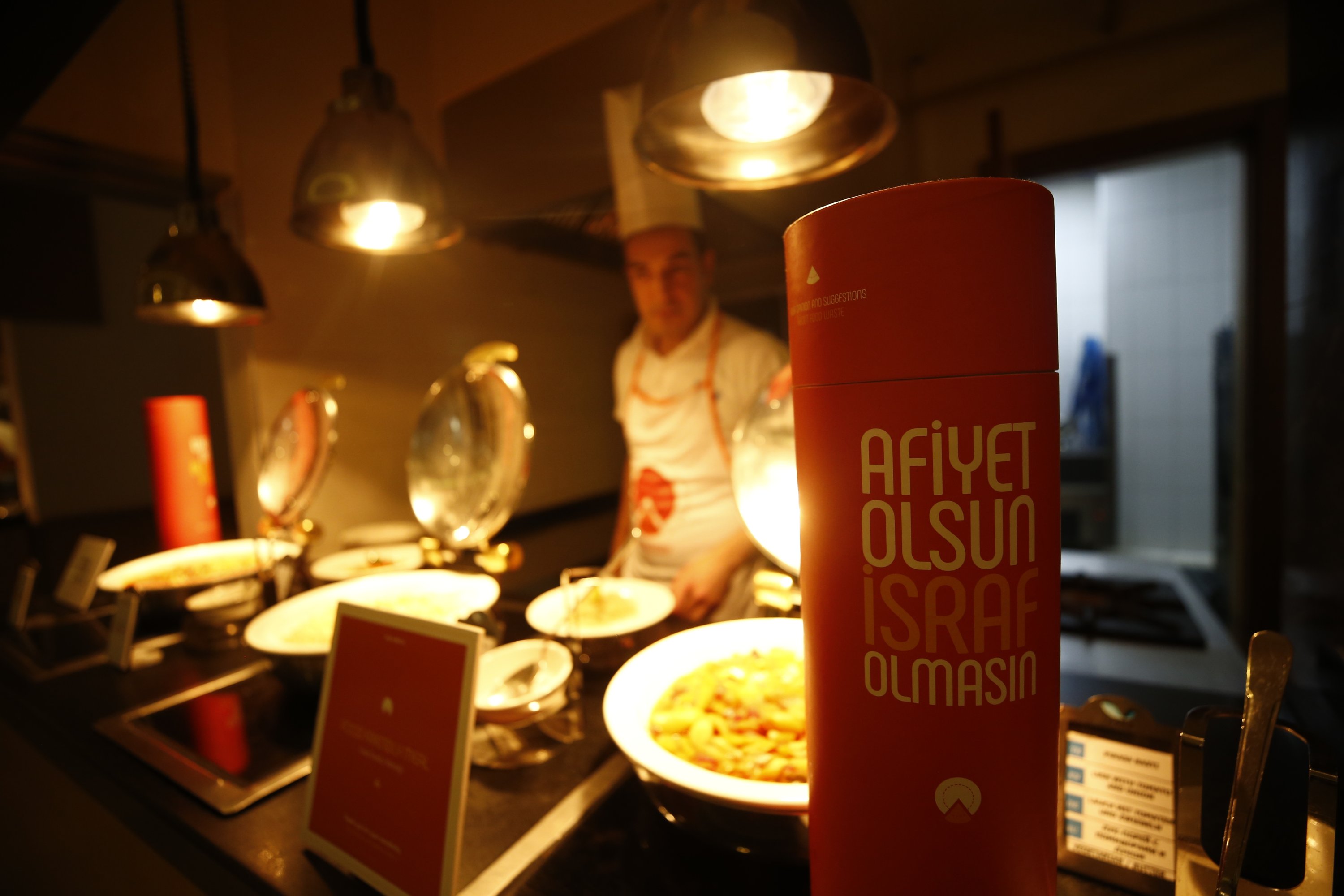© Turkuvaz Haberleşme ve Yayıncılık 2024
The number of hotels in Türkiye given an “orange flag” for the recycling-oriented, environmentally and nature-friendly practices focusing on combating excessive food waste is expected to increase to 250 by the end of the year, the project implementation coordinator noted Wednesday.
Ali Akgün, the coordinator of the orange flag implementation and the director of the Prevention of Food Waste Platform, told Anadolu Agency (AA) that the orange flag is a comprehensive system that directly contributes to the efforts to prevent food waste and protects food, raises awareness in society, and generates radical solutions to the problem of food waste.
The system is supported by many institutions, including the Ministry of Culture and Tourism, the Ministry of Agriculture and Forestry, the Turkiye’s Cooks and Chefs Federation (TAŞFED), the Turkish Restaurants and Pastries Federation, the Turkish Hoteliers Federation (TÜROFED), Turkish Travel Agencies Association (TÜRSAB) and the Tourist Guides Association.
Expressing that the orange flag, which is unique to Türkiye and whose foundations were laid in 2017 to support zero waste efforts, started to be implemented in some hotels in 2019, Akgün stated the initiative includes all kinds of services related to food, from production to processing, from storage to sales and consumption.
Emphasizing the importance of preventing waste, Akgün said that the significance of this concept emerged especially during the COVID-19 pandemic.
“The orange flag is flying all over Türkiye today. It is applied in 47 hotels from Sakarya to Rize, Bursa to Antalya and Muğla to Cappadocia. We anticipate that we will exceed 250 hotels by the end of this year and 1,000 hotels next year,” he said.
Noting that the facilities seeking to gain the flag have submitted their applications to the platform, Akgün explained that the hotel managers were the ones who first familiarized themselves with the system.
In the case of the manager approving the system, the awareness events, personnel training and representatives get appointed, he said.
“The system includes the menu design, preparation and presentation of food in the most useful way, in line with the zero waste concept,” Akgün explained.
He also added that the activities and events that will create a sense of awareness in the guests, including storybooks written for children and dances being designed, have been prepared to meet the initiative's goals.
Akgün further noted that the business inspections and the scoring are conducted periodically and documented as well.
Akgün stated that they monitored the activities of the facility that received the flag, reinforced the performance indicators, and stated that the facilities that received the flag are required to fulfill the procedures constantly.
Expressing that the platform stepped in when any malfunction occurred, Akgün stated that the representatives of the platform work on eliminating the disruptions with constructive steps and ensuring the system's sustainability.
Pointing out that the orange flag is a completely domestically developed system, Akgün conveyed his belief in rapidly expanding the hotels taking part in the network.

“Work on an international model is being conducted. We plan to expand to the international arena in 2024. There are chains of hotels in the world, the groups (operating) with 5,000 hotels; we correspond with them,” he maintained.
Emphasizing that the orange flag adds extra value to hotels that respect food, are recycling-oriented, environment-friendly, animal-loving, reduce operating costs, and contribute to the country’s economy, Akgün noted that the accommodation industry has also adopted this system.
Levent Suyolcuoğlu, a general manager of the ASKA Lara Hotel in Antalya, where the orange flag is waving, noted that they became involved in the practice last year and that they had the hotel staff trained.
Suyolcuoğlu stated that in order to raise awareness among the guests, they hung the text “Enjoy your meal, no waste” and documents symbolizing the orange flag at some points of the facility, especially in the restaurant sections.
“We also organize fun activities for guests. In order to maximize awareness, we have prepared small surprises for our guests who have finished everything on their plates. We cheer children up with different activities. It is a very useful application. We have seen its effects. It is a sustainable program,” he concluded.
